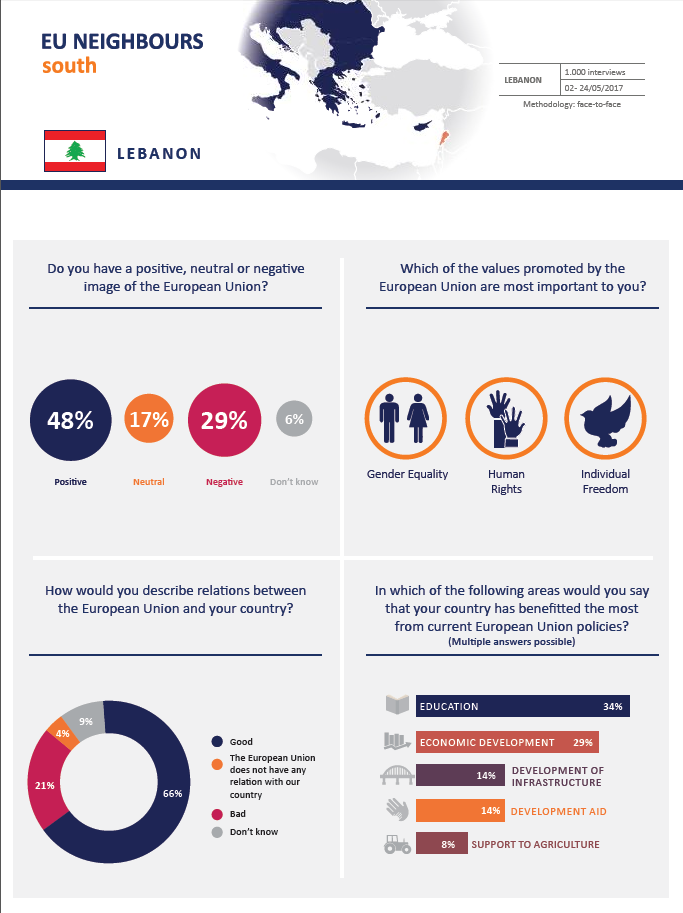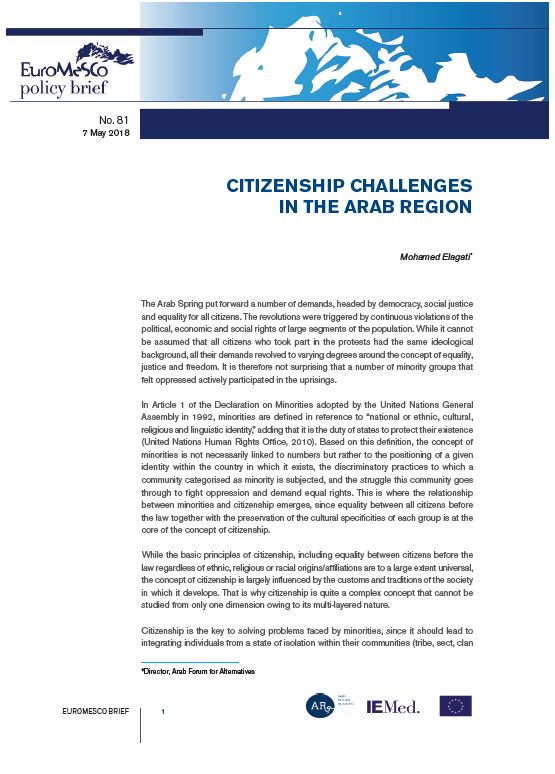Opinion Poll 2017 – Lebanon (factsheet)

Lebanese feel their country has good relations with the EU, new poll finds
Most Lebanese feel their country has good relations with the European Union, and that the EU has a positive influence on socio-economic development, with 88% saying EU financial support to the country is effective – just some of the findings of the latest annual opinion poll in Lebanon, published by the EU Neighbours South project.
The survey – part of a wave of opinion polls carried out in seven southern Mediterranean partner countries – was conducted in Lebanon in May 2017, with 1,000 people consulted in face-to-face interviews. Respondents were asked about their general perceptions of the EU and the values with which it is associated, about EU relations with their country, and the impact of EU financial support. The surveys also look at preferred sources of information, how people feel about their personal situation and the situation in their country, and their expectations for the future.
In general, Lebanese perceptions of the EU were in line with the regional average of the four Mashrek countries (Jordan, Lebanon, Palestine and Israel), but were less positive than the three Maghreb countries (Algeria, Morocco, Tunisia).
Asked to describe relations with the EU, 66% said they were good, just above the average of 64% in the Mashrek (76% in the Maghreb). Fifty-nine per cent of those asked felt the EU had a positive influence on socio-economic development in Lebanon, and 88% said EU financial support was effective.
However, respondents were divided as to whether the EU and Lebanon had sufficient common values to cooperate (45% yes, 46% no), and whether the EU was an important partner for Lebanon (46% yes, 47% no).
In more general terms, almost half (48%) of those asked had a positive image of the EU, compared to the Mashrek average of 44% (Maghreb 62%), while 17% had a neutral image and 29% a negative image. The values most frequently associated with the EU were equality between men and women, human rights, and individual freedom; those least associated with the EU were peace and security, and an absence of corruption.
Lebanese feel EU support has contributed the most in the areas of education (34%) and economic development (29%), and are keen for the EU to play an even greater role in both those areas.
Private television channels are by far the main source of information for news in Lebanon (cited by 77% of respondents), but very few tune in to public TV (just 16%). Social media (46%) and the Internet (42%) are also strong sources of news, with radio and the written press languishing far behind.
Most Lebanese are satisfied with their lives (57%, compared to an average of 65% for the Mashrek, and 79% for the Maghreb). But they are very worried about the economic situation in their country (77% feel it is bad, compared to 61% in the region), and half of them are afraid that it will get worse in the next 12 months (only 19% think it will get better). Twenty-seven per cent also think their life in general will get worse (26% think it will get better, and 40% think it will be more or less the same).
The EU Neighbours South regional overview report and factsheets are available here.
To find out more about EU – Lebanon cooperation and partnership, go here.
Latest Publications






























 Syria
Syria 



